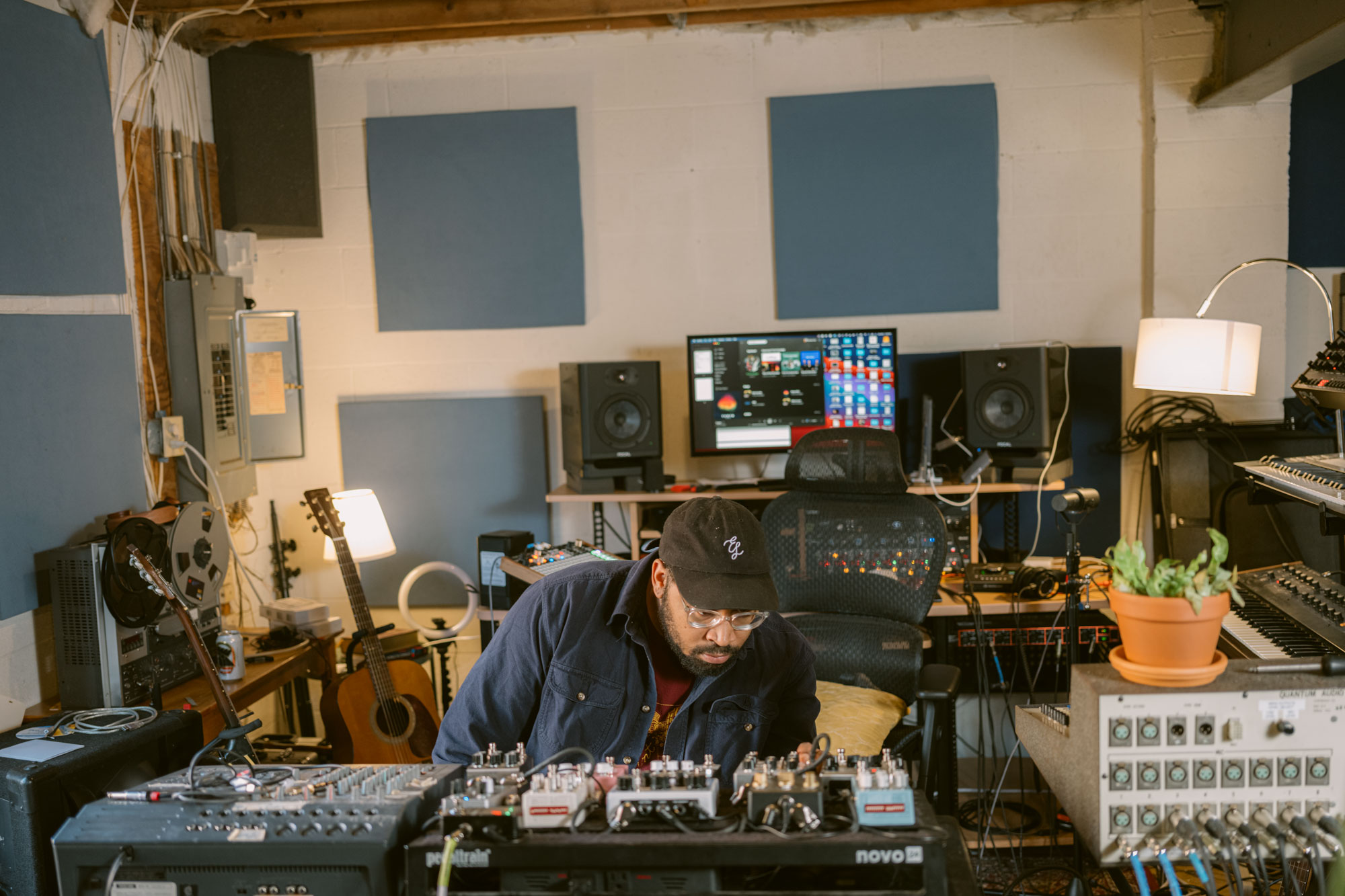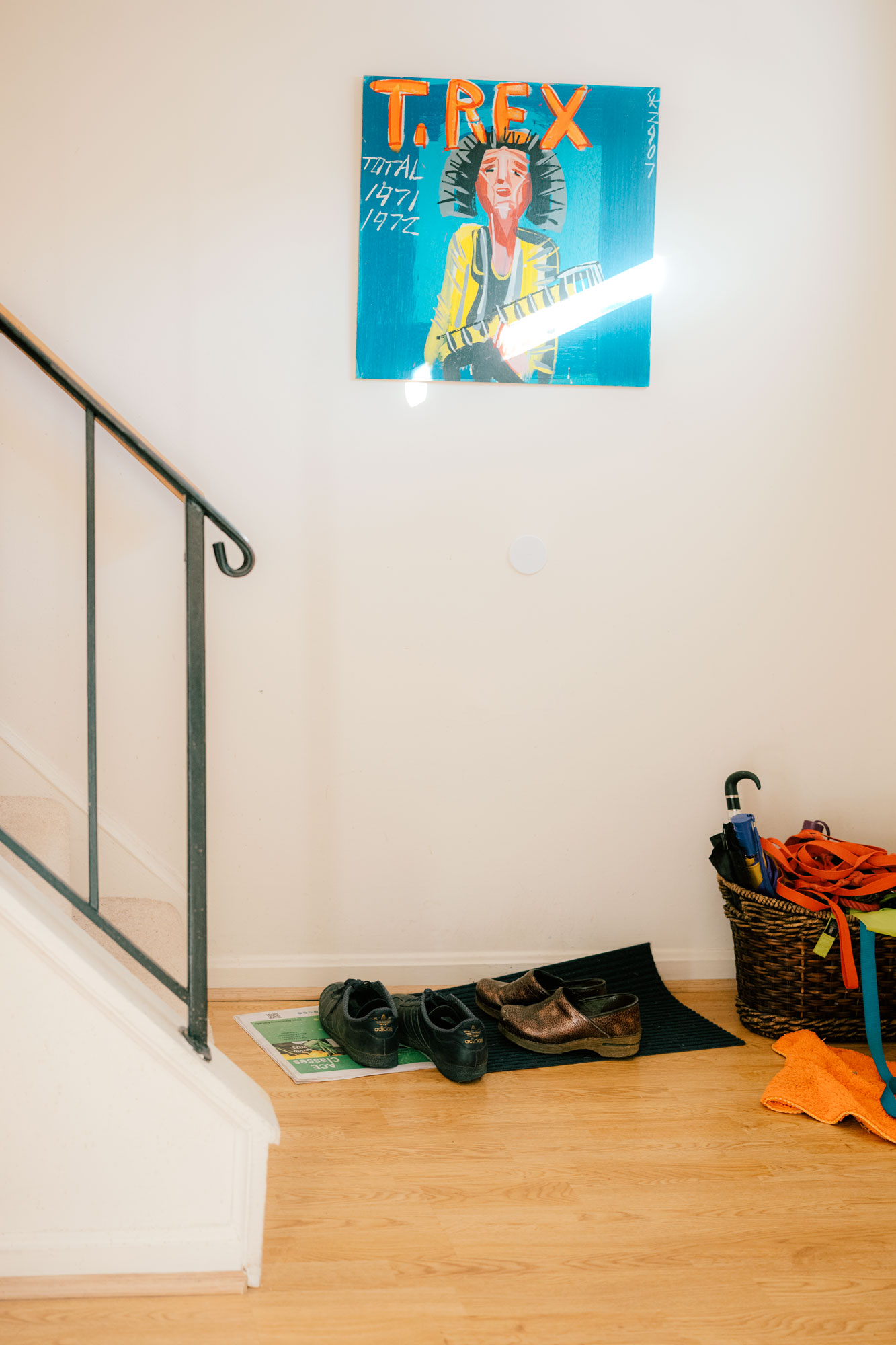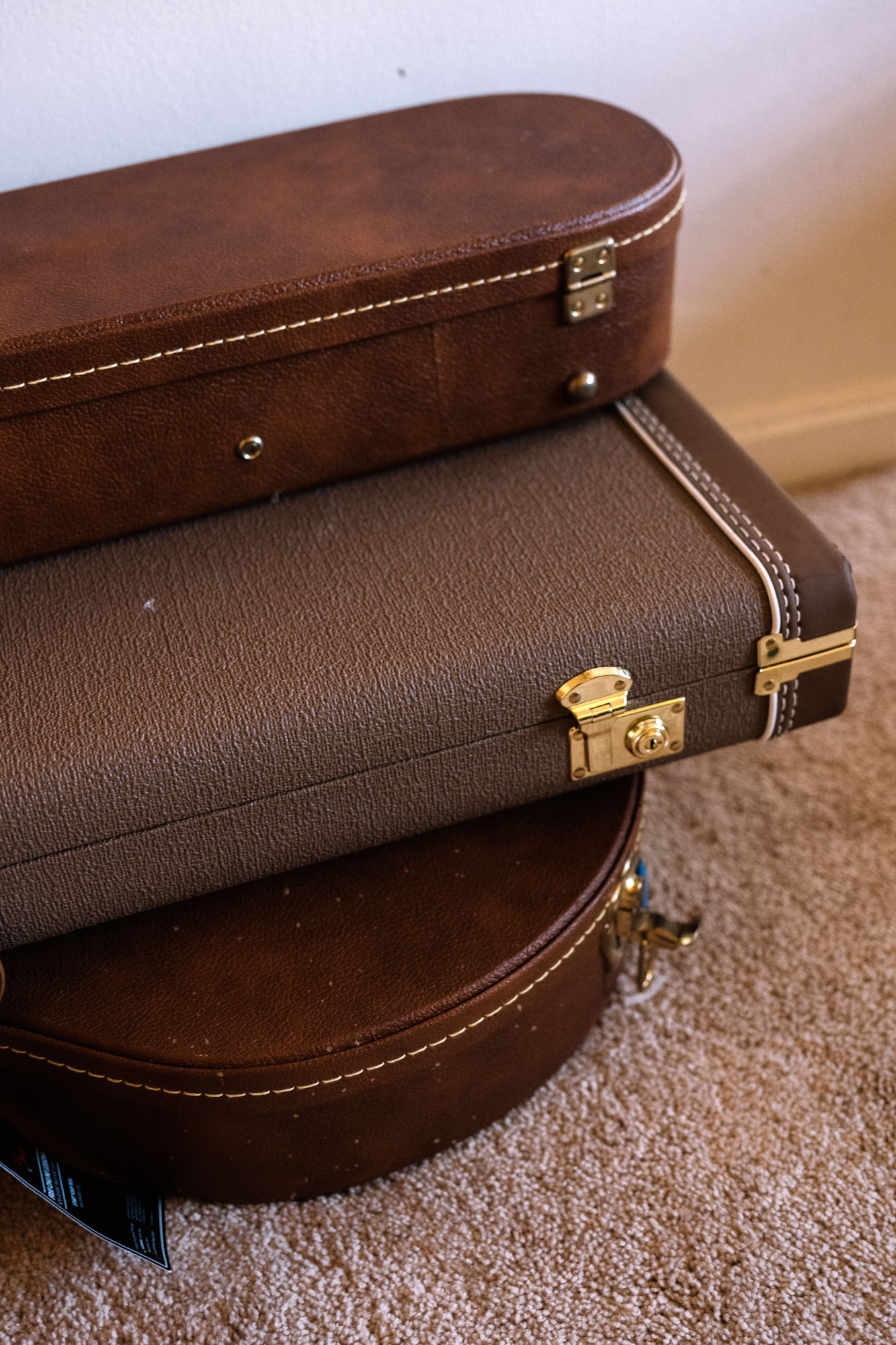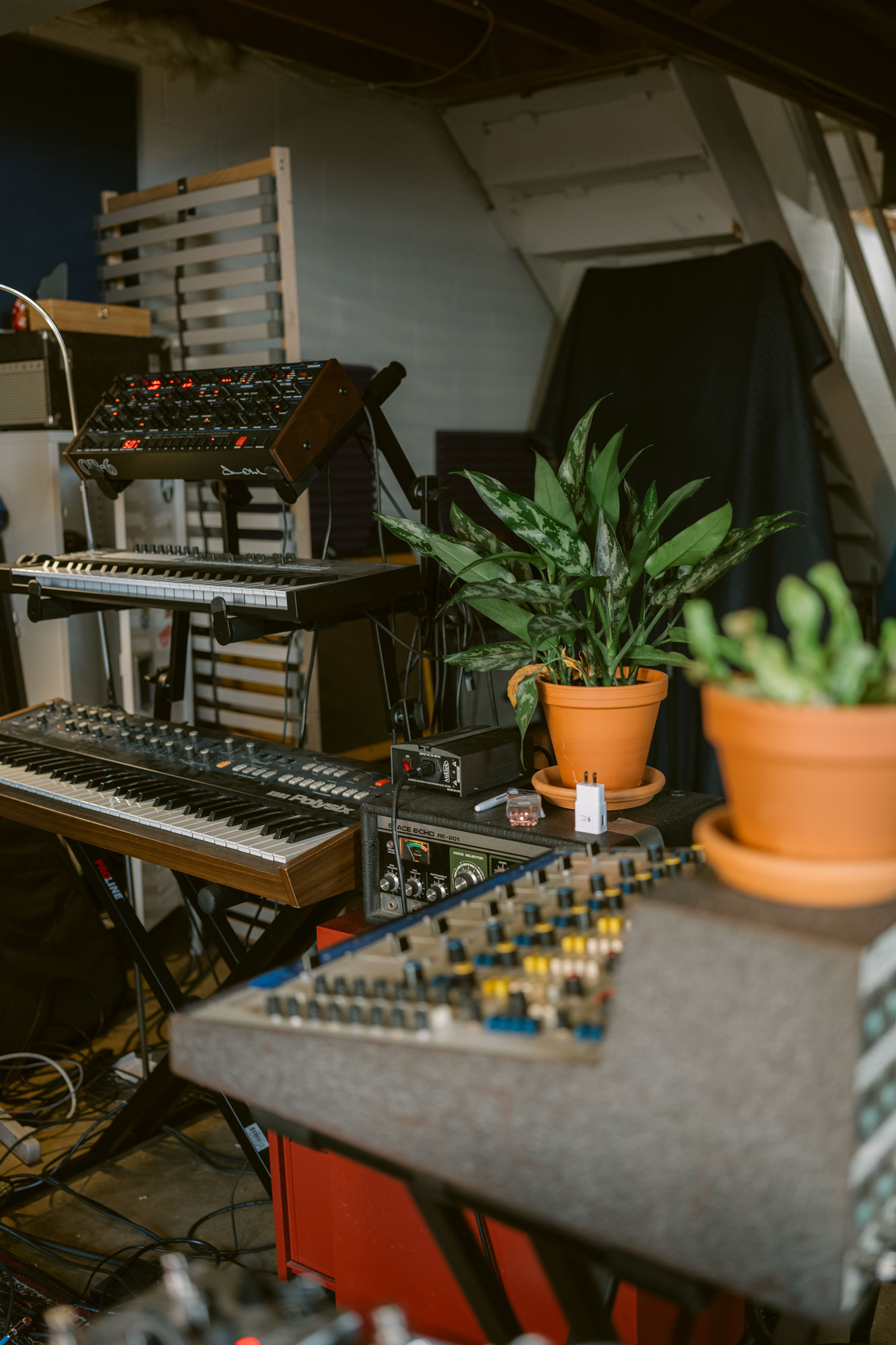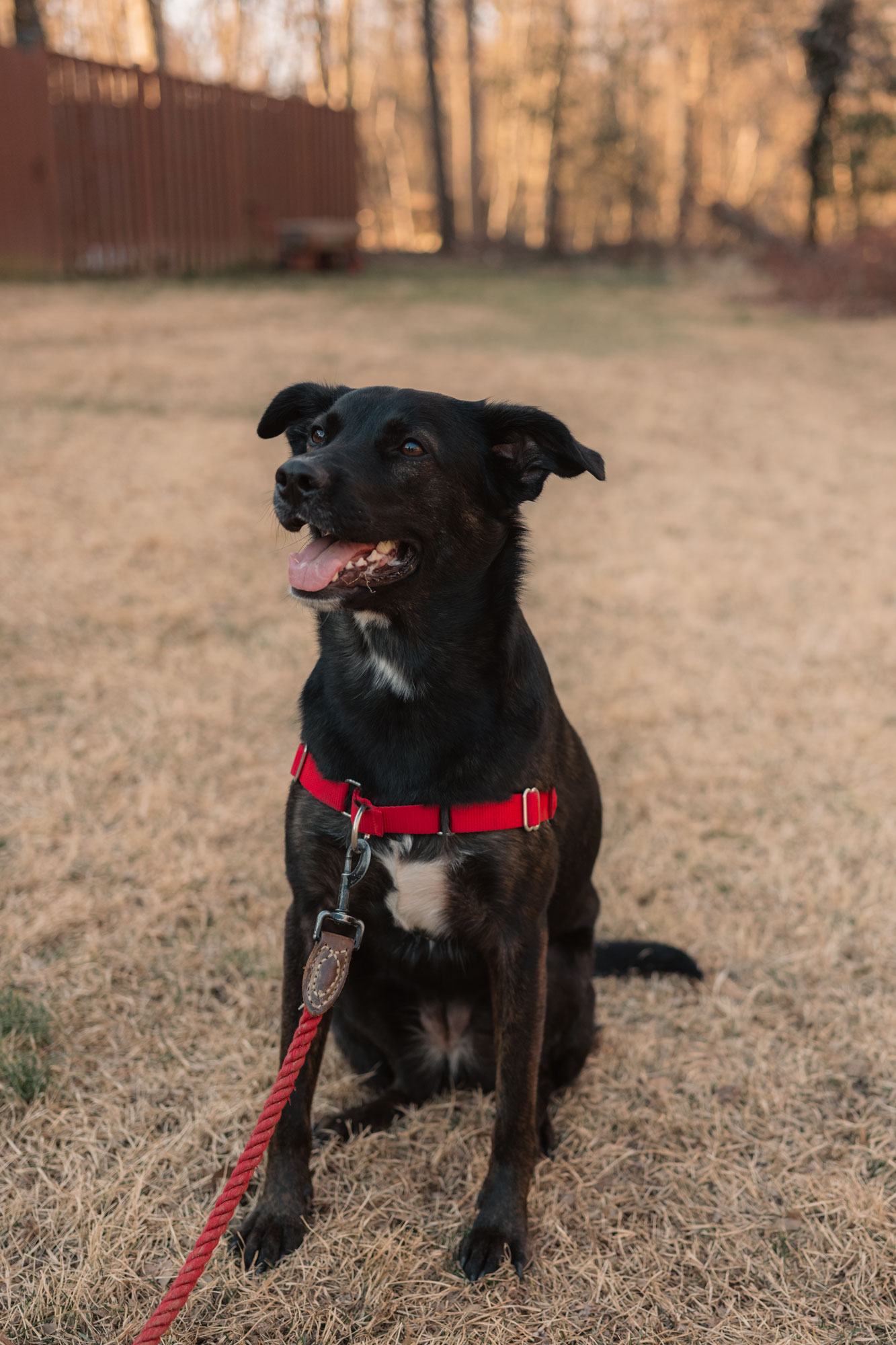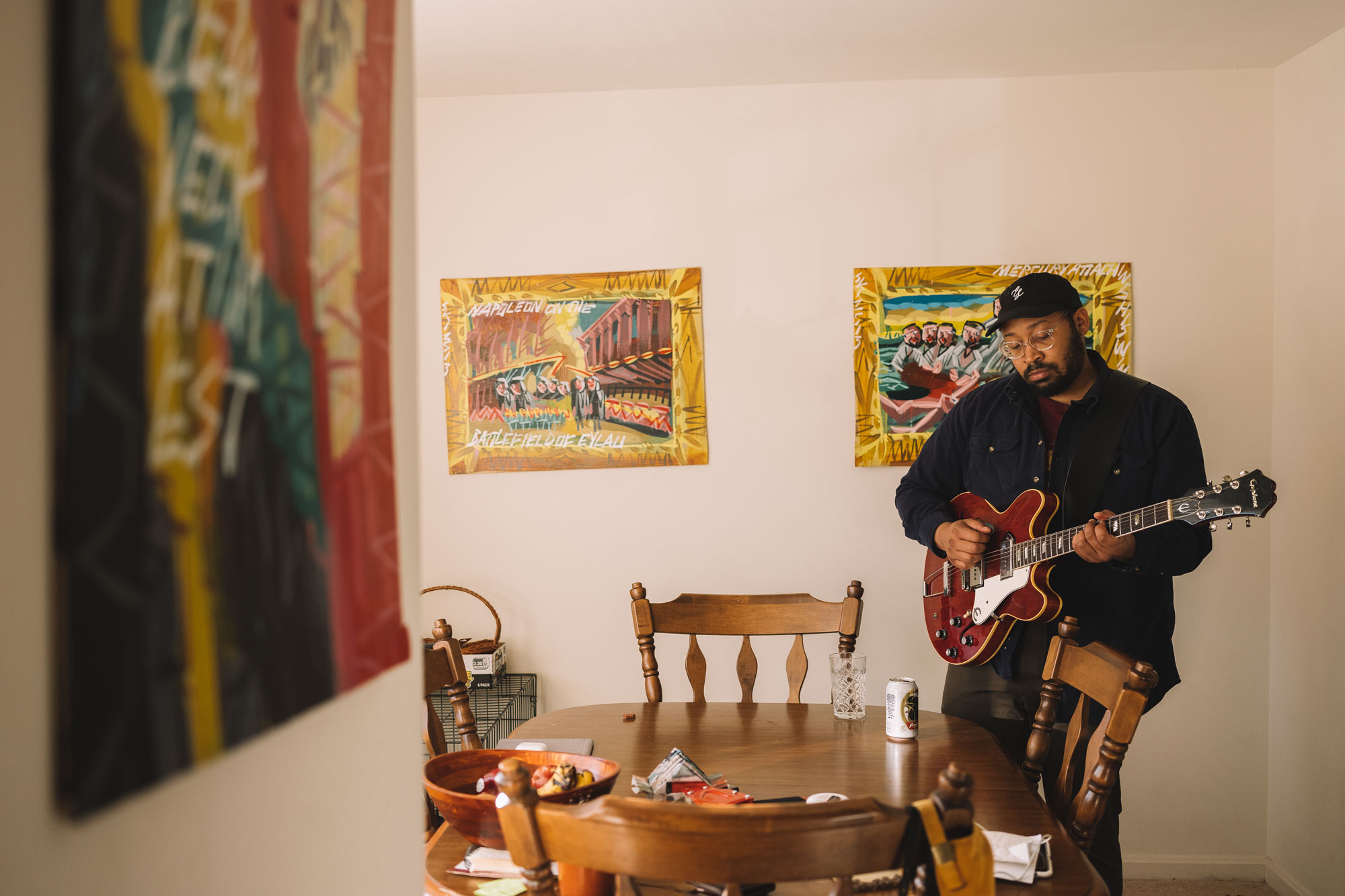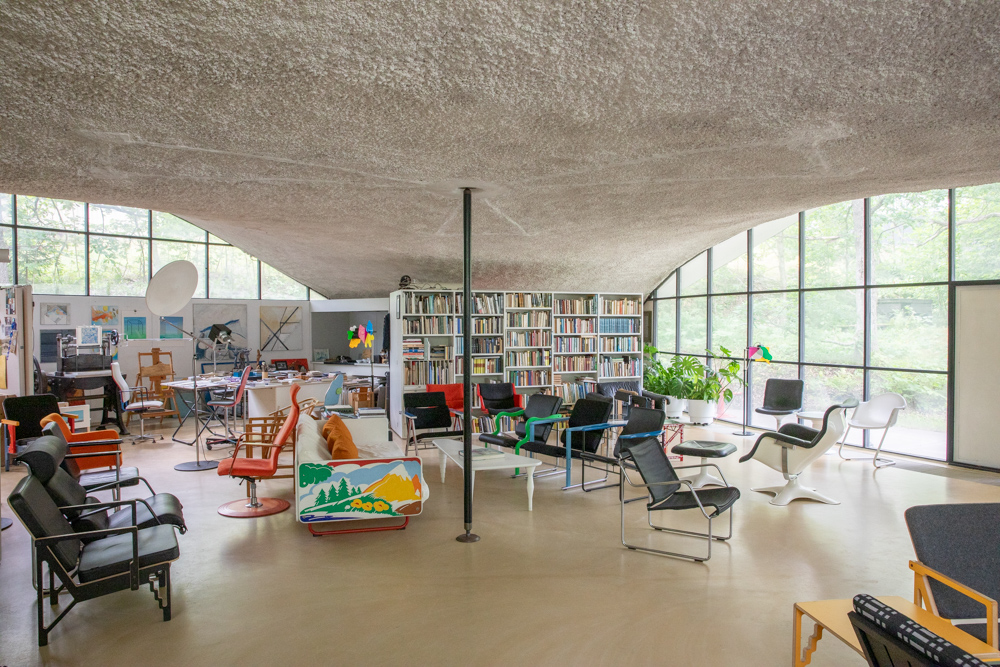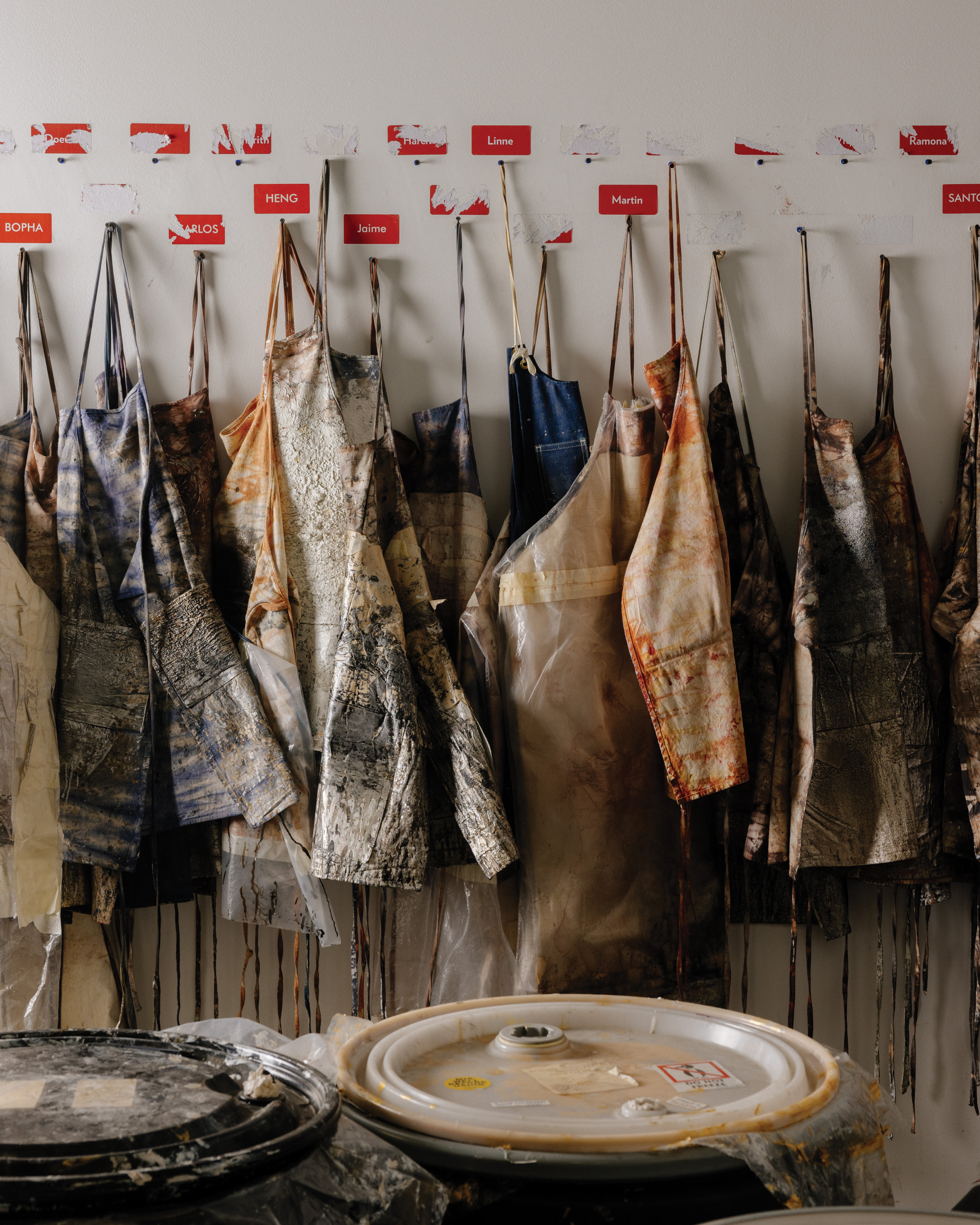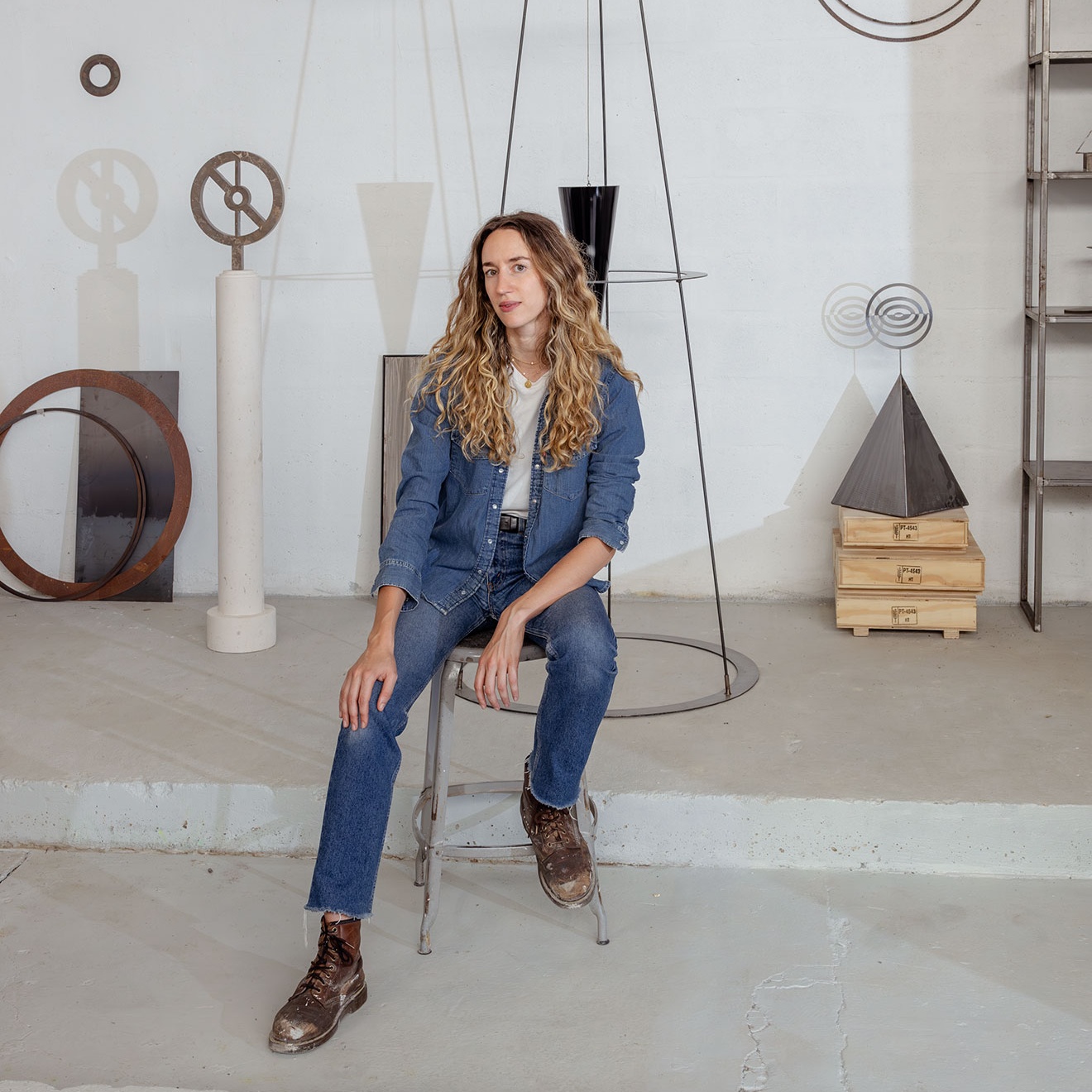It sounds like Bartees Strange is washing dishes when I call.
He’s got an hour before he has to be at the recording studio.
“I feel really grateful,” the 32-year-old tells me, looking back over last year. “I thought Live Forever was special, but I had no idea I would get as much attention as I did.”
- Photo by Jared Soares
- Music has been an escape for Bartees since he was young. “It was my special place where nothing that could hold me back in the real world could hold me back there,” he says. Photo by Jared Soares
Live Forever is my favorite album of the last year, and not just mine—Bartees is on many best new artists lists, from Pitchfork to Rolling Stone, and he performed recently on the coveted NPR Tiny Desk concert series.
He is, as they say, having a moment.
But he’s also just another 30-something figuring things out, living in a Falls Church, Virginia townhome, walking his dog Miss Bobbie, and learning to trust his gut and follow his heart.
Bartees spent the last 10 years trying to figure out what he “should” be doing professionally while making music on the side.
He studied journalism, worked for the FCC under the Obama Administration, and was a political strategist and “climate change communicator” for a nonprofit.
Working in climate change was a turning point. He was miserable.
He recalls being on a work trip in Germany several years ago, post-Paris Agreement negotiations, for a series of climate talks he says he found particularly grating.
“I’m beyond jaded in every direction. I’ve seen it too close, how the larger nonprofits and things really work. It’s like, is nothing sacred in this world? Is nothing real? Can I be a part of something real?”
Bartees was beyond disheartened, a self-described shell of a human.
“I hate my job. I hate my current lifestyle, and I want to change it so bad. I want to make music and do something with my life that means something. I want to feel something.”
He looked around and asked himself: How did all of my ambition take me to this? What do I want my life to look like? Who do I want around me? He felt guilty for his unhappiness.
“I’m lucky to have this job,” he recalls thinking. “I had job survivor guilt or some shit.”
- Plants fill Bartees’ basement recording studio in suburban Washington, DC. Photo by Jared Soares
- Bartees starts each day walking his dog Miss Bobbie around his surburban DC neighborhood before heading into the recording studio. Photo by Jared Soares
An experience with a friend in Brussels—a girl who invited him to take a couple of weeks and explore Berlin and Brussels and “let your hair down, kiddo”—changed him.
He ended up in the Flagey neighborhood in Brussels. The experience set the stage for his dance-heavy standout track on Live Forever, “Flagey God.”
“It was the best time I’d ever had, and it reminded me of things I actually enjoyed doing,” he says. “You ever get to a point where you do so much for other people you forget what you even liked? I’d forgotten who the hell I was, and those two weeks reminded me.”
In Flagey—a popular area in Brussels with Art Deco architecture and abundant classical and jazz music—Bartees felt alive again.
“I felt like a god. I felt like I could do anything I wanted to do, and that’s what that song is about—when you’re in the zone and everything is working and you remember you’re actually good at something and you can do that with your life. That’s the energy of that song.”
He came back and says he remembers being “like a bat out of hell.”
“Like, I’m doing this other thing with my life now. I’m going to figure this out. And I don’t care how many people tell me I won’t have health care, and I won’t have kids, and nothing is going to work out. I’d rather have all that shit happen to me than be this person I’m becoming.”
- Bartees plays the guitar in his townhome’s dining room. Photo by Jared Soares
It was the impetus for Live Forever. “People tell you there’s a way life is supposed to be and there’s a timeline and schedule,” he says. “There are so many ways to be behind. I spent my whole life feeling behind and in a rush.”
Live Forever was released to critical acclaim in late 2020, but Bartees says it wasn’t until September 2020 that he was able to do music full-time, producing other musicians’ work as part of 38NorthStudio in Falls Church, Virginia, and spending the rest of his time writing in his basement studio.
Growing up Bartees was exposed to a lot of music.
His mom is an opera singer, he went to opera camp, and he played trumpet, albeit terribly, in middle school. When his mom bought him a cornet, he was embarrassed.
“I wanted a full-size trumpet,” he laughs. “I felt like everyone’s trumpets were bigger than mine. It was demotivating.”
He says he sucked at band, but he was a great singer.
He and his siblings sang at church. As he got older he discovered more music that wasn’t gospel or Christian music.
“My dad was really into funk and soul and had a lot of R&B, but I never had access to the radio. When I got into eighth or ninth grade people started driving and taking me to my first shows. I fell in love with hardcore and punk music and more experimental indie stuff.”
He started to wonder, how do you make that? Then he found two bands that were pivotal to his becoming a musician today—TV on the Radio and At the Drive-In.
“I was one of a few black kids in my town, and I always wanted to do all these things, but I never saw anyone who did it who looked like me. When I saw Tunde Adebimpe (of TV on the Radio) playing on Letterman, it was a lightning bolt through my body moment. I was like, ‘Holy shit. He’s black and he’s messy and he wears flannel and his glasses are big. He looks just like me. I remember taping it and literally just looking at him,” Bartees says.
“It just really hit me, and I had a new thought in that moment: What if I did that with my life?”
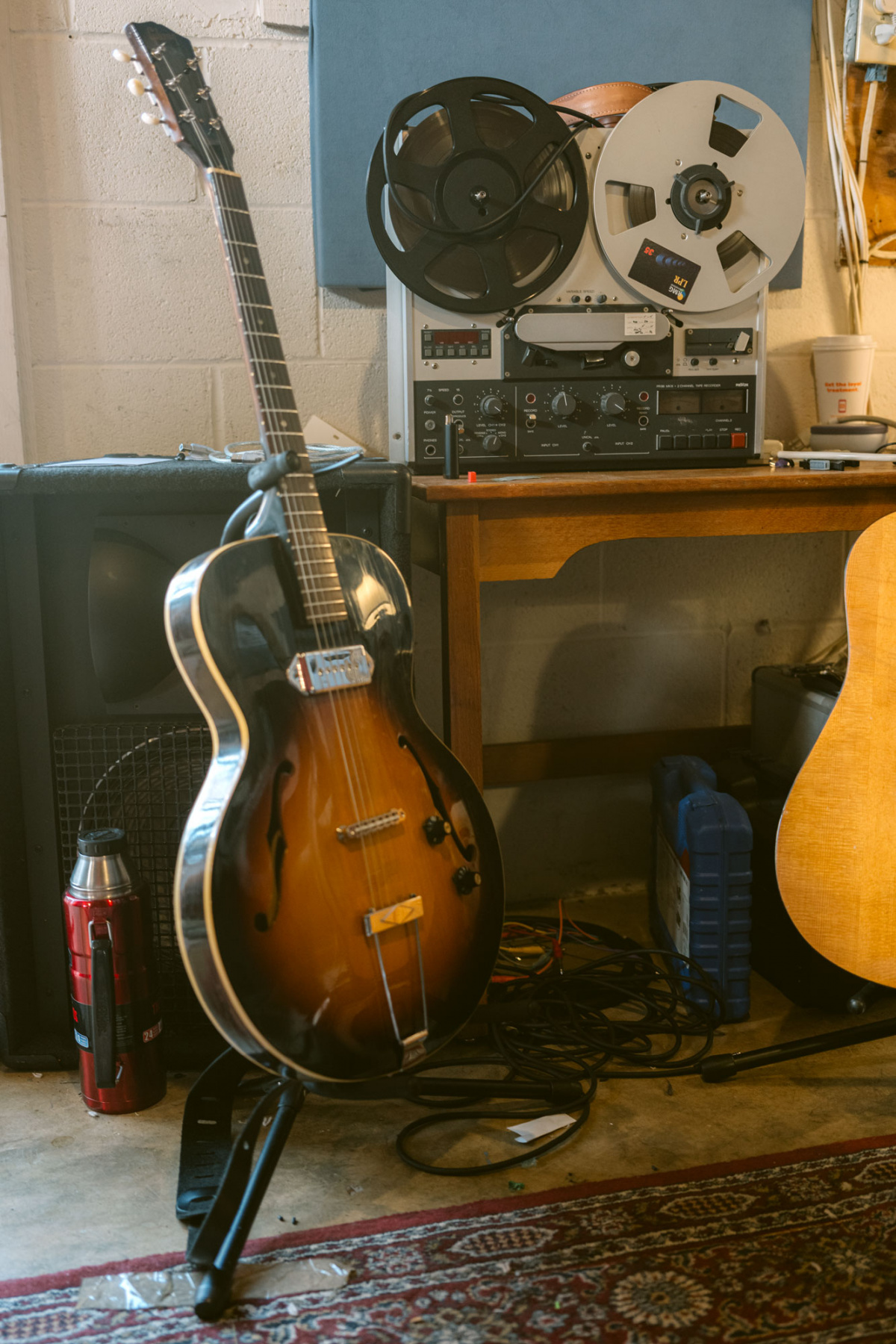
Photo by Jared Soares
Bartees and his family moved to Mustang, Oklahoma when he was 9 or 10.
Before that they bounced around a lot; his father was in the military.
They lived in the UK and Germany, New Mexico and California. He remembers his dad telling him when they moved to Oklahoma, “I want you to understand how the world actually works, and I want you to understand how to work around white people. Regardless of what’s happening around you, I want you to be able to find your center and do the things you want to do with your life.”
He got good at moving to new places, learning what other kids liked, and trying that on.
“I felt like I understood people. I was exposed to lots of types of people through my parents and I was a little kid who thought he was a grownup. When I got to a new place I’d be like, ‘What’s everybody into? Cool, I can get into that, too.’”
He figured if he liked what other people liked he’d be accepted. In Mustang all of the boys played sports.
“I remember being in seventh grade thinking, ‘I’m going to have to play sports until I get out of high school.’ I remember locking into the idea and being like, ‘Not only do I have to play sports; I have to be really good because I’m one of four black kids, and there are expectations.”
He felt like he had to grow up fast, and that there were paths he had to take to get where he wanted.
“There are good parts to knowing how to fit in and seeing what people like, and there are also really shitty parts. As I got older I learned how to balance that. I got to the point where I forgot who I was. I forgot what I liked. I lost myself in moving different places and trying to fit in instead of building a place that could hold me.”
He’s glad he had the realization when he did, in his late 20s, especially when he sees people for whom the 9 to 5 life simply isn’t working.
“I know a lot of people who are walking skeletons, who are just so over every part of their lives but feel so encumbered by it that they can’t shake it loose. I don’t want to have to live like that.”
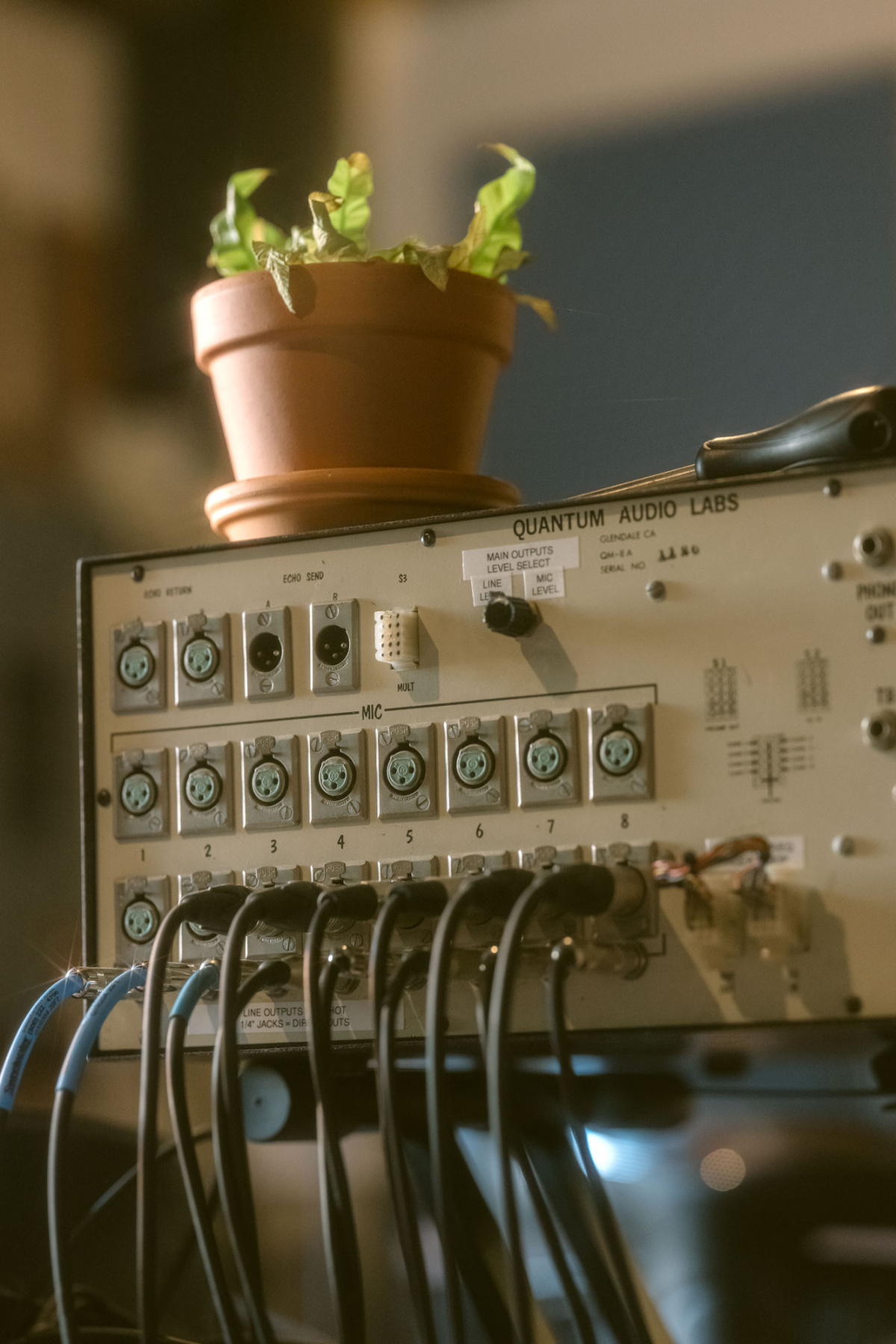
Photo by Jared Soares
Today Bartees calls his own shots.
He starts each day with a cup of coffee, walks his dog around the neighborhood, and heads to the studio around 11, working to help make other people’s music even better, often until 7:30 or 8. He goes home and heads to the basement to work on his own new music.
“I’ve been trying to use the quarantine to get all the ideas out and record as many of them as possible. I’d love to record another album or two before things open back up so I can just have them done; that’d be cool. That’s my goal, but who knows if I’ll actually accomplish it,” he laughs.
The future, though uncertain, is exciting. He’s booking dates for later in the year, he’s already signed on to at least one music festival, and he’s hopeful for live music in 2021. He feels more confident in his writing since Live Forever, too.
“Since that’s come out I’ve grown even more personally, musically, spiritually. I feel like I’m better at who I am now than I was then, so I’m excited to see what that sounds like. No one really knows what I’m going to do next or make next, and I like that energy because I don’t know what I’m going to make next either. I love being surprised by it.”
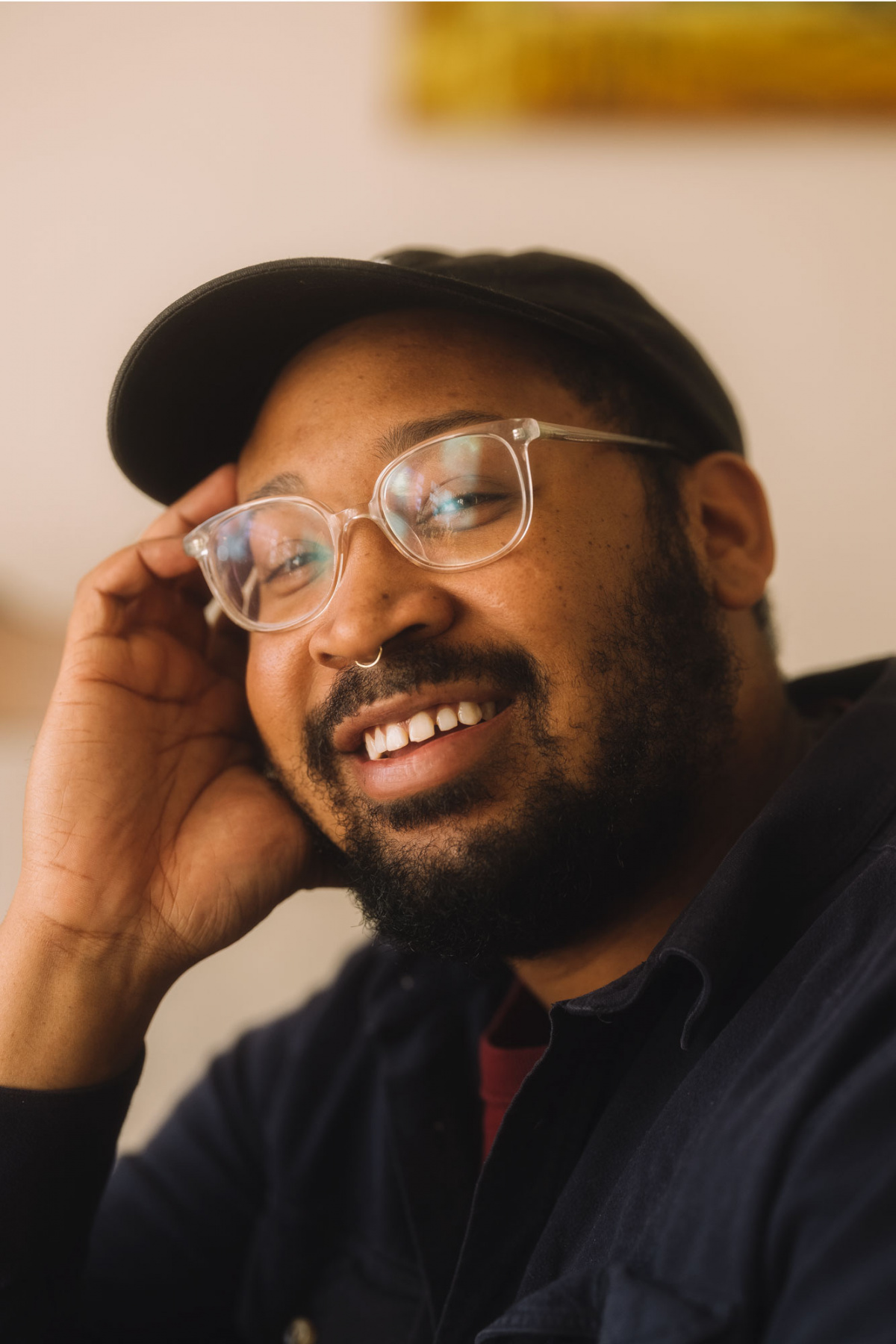
Photo by Jared Soares
A version of this article originally appeared in Sixtysix Issue 06 with the headline “Bartees Strange: Musician, Falls Church, VA” Subscribe today.
